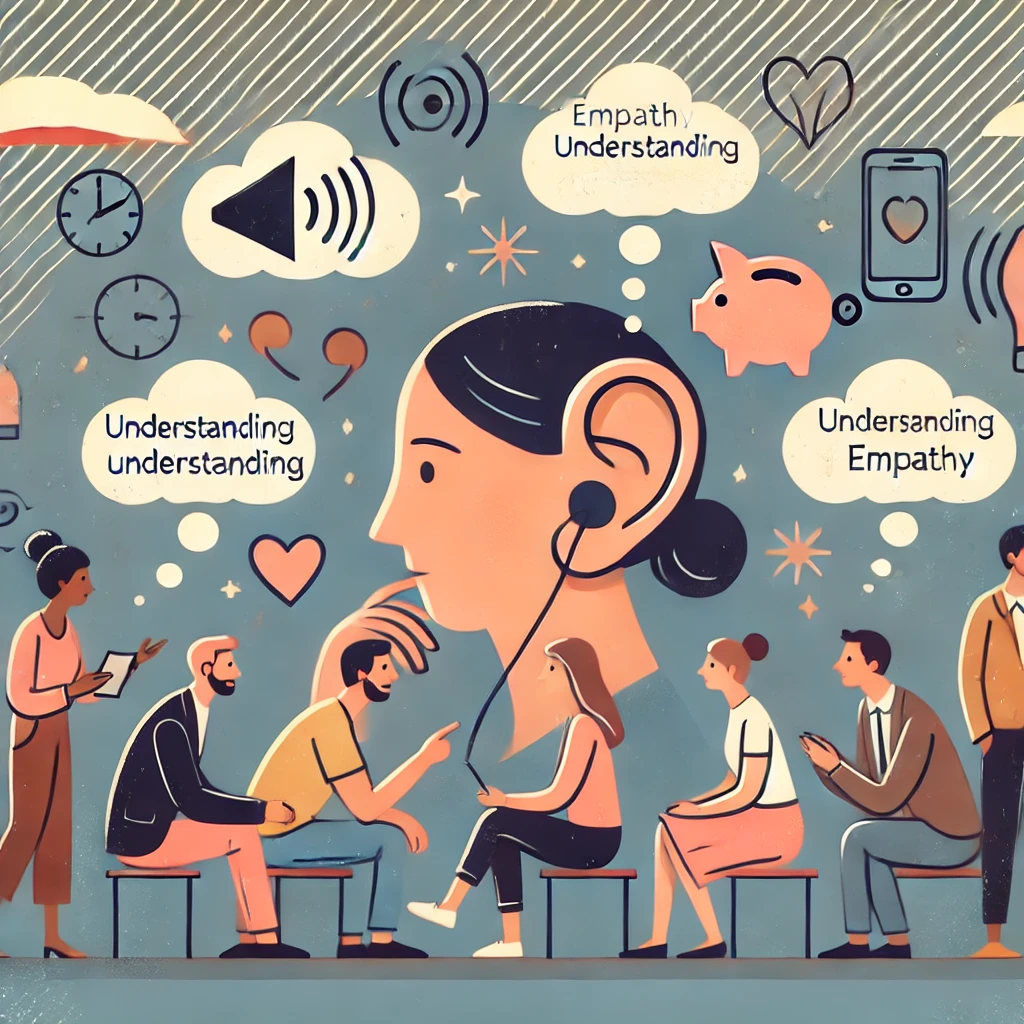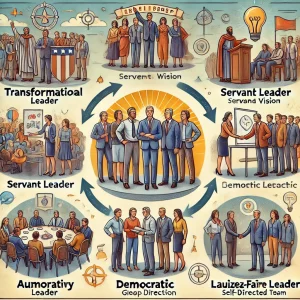Introduction
In a world where communication is constant and information flows faster than ever, the ability to listen effectively is more crucial than many realize. Despite its importance, listening is a skill that people often overlook, favoring speaking or reacting instead. True listening goes beyond simply hearing words—it involves understanding, empathy, and thoughtful engagement. This article explores why listening is often neglected, the profound impact it has on personal and professional relationships, and how you can cultivate this essential skill.
Why Do People Overlook Listening?
The Fast-Paced Nature of Modern Life
Today’s society values speed and efficiency. With quick conversations, instant messaging, and the pressure to multitask, people often prioritize responding over truly understanding. In this rush, listening becomes passive rather than active.
The Desire to Be Heard
Many people focus on expressing their thoughts and opinions rather than absorbing what others are saying. Conversations can turn into competitions, with individuals waiting for their turn to speak instead of engaging with the speaker’s message.
Distractions and Short Attention Spans
Technology and constant notifications pull attention away from meaningful interactions. Checking phones during conversations or letting the mind wander are common habits that hinder genuine listening.
Misunderstanding Listening as a Passive Activity
Listening is often seen as a passive act, but active listening requires concentration, empathy, and intentionality. Misconceptions about what listening entails lead people to underestimate its importance.
The Importance of Effective Listening
Strengthening Personal Relationships
Active listening fosters deeper connections in personal relationships. When people feel heard and understood, trust and intimacy grow. Whether with friends, family, or partners, listening shows care and respect.
Enhancing Workplace Communication
In professional settings, effective listening improves collaboration, reduces misunderstandings, and boosts productivity. Leaders who listen to their teams can better address concerns, inspire loyalty, and make informed decisions.
Supporting Emotional Well-being
Listening can be a powerful tool for emotional support. Offering a nonjudgmental ear helps others process their feelings, reducing stress and fostering resilience. Sometimes, being heard is more valuable than receiving advice.
Facilitating Learning and Growth
Listening is fundamental to learning. By paying close attention, you absorb information more effectively and gain new perspectives. This applies in classrooms, workshops, and everyday conversations.
Barriers to Effective Listening
Prejudgments and Bias
Entering conversations with preconceived notions can block understanding. Keeping an open mind allows for genuine engagement without filtering messages through personal biases.
Emotional Reactions
Strong emotions like anger or defensiveness can impede listening. When emotions take over, the focus shifts from understanding to reacting.
Environmental Distractions
Noisy surroundings or interruptions make it difficult to concentrate on the speaker. Creating a conducive environment for listening can significantly improve comprehension.
Overthinking Responses
Focusing on what to say next instead of the speaker’s words prevents full engagement. Letting go of the urge to plan responses allows for more meaningful interactions.
How to Develop Better Listening Skills
1. Practice Active Listening
Active listening involves fully concentrating, understanding, and responding thoughtfully. Tips include:
- Maintain eye contact to show attentiveness.
- Nod or use small verbal cues like “I see” or “Go on” to encourage the speaker.
- Paraphrase what you hear to confirm understanding (e.g., “So you’re saying…”).
- Avoid interrupting, even with good intentions.
2. Manage Distractions
- Put away devices during conversations.
- Find quiet spaces for important discussions.
- Clear your mind of unrelated thoughts before engaging.
3. Cultivate Empathy
Empathy enhances listening by allowing you to connect with the speaker’s emotions. Practice putting yourself in their shoes, and listen not just for words but for feelings and underlying messages.
4. Ask Open-Ended Questions
Encourage deeper conversations with questions like:
- “Can you tell me more about that?”
- “How did that make you feel?”
- “What do you think would help in this situation?”
5. Reflect on Your Listening Habits
Regularly evaluate how you listen:
- Do you interrupt or talk over others?
- Are you easily distracted?
- Do people often repeat themselves when speaking to you?
Identifying areas for improvement is the first step toward becoming a better listener.
The Benefits of Mastering the Art of Listening
Improved Relationships
People appreciate being heard. Strong listening skills can resolve conflicts, build trust, and strengthen bonds both personally and professionally.
Enhanced Problem-Solving
Listening carefully allows you to understand issues more thoroughly, leading to better solutions and collaborative outcomes.
Increased Knowledge and Insight
By genuinely listening to others, you gain access to diverse perspectives and valuable information you might otherwise miss.
Greater Emotional Intelligence
Effective listeners often have higher emotional intelligence, enabling them to navigate social situations with empathy and understanding.
Conclusion
The art of listening is a skill that holds immense power yet is often underestimated. In a world full of noise, being a good listener sets you apart, fosters meaningful connections, and opens doors to understanding and growth. By practicing active listening, managing distractions, and approaching conversations with empathy, you can transform your communication skills and positively impact those around you. Remember, listening isn’t just about hearing words—it’s about truly understanding the people behind them.




